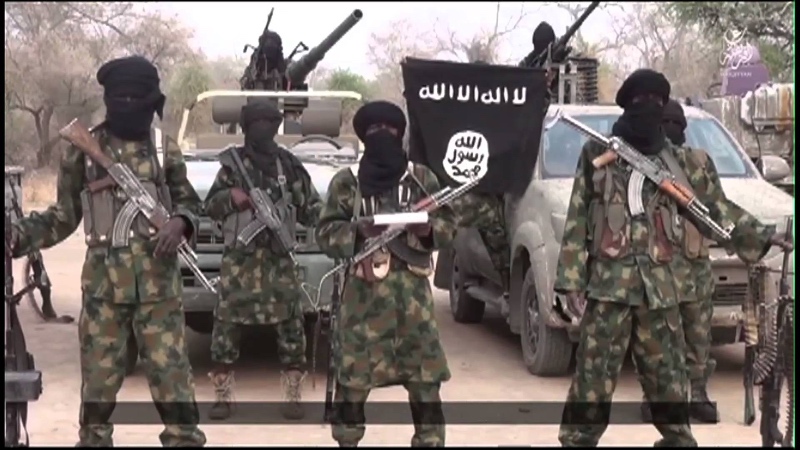
In 2004, the world was shocked when Boko Haram kidnapped 276 schoolgirls from the Nigerian town of Chibok. The #BringBackOurGirls campaingn turned the attention of the world to the rising Islamic terrorism in Nigeria. Yet, despite the international atention which spurred the Nigerian government to mount a rescue operation, the whereabouts of some of the missing girls still remained unknown till date.
Radical Islamic groups have been emerging accross the African continent, including Somalia's Al-Shabaab occupying the Horn of Africa and Al-Quaeda in the Islamic Maghreb. Alongside these, the extremist group Boko Haram doubled its attacks in Nigeria since 2010, killing over 30,000 people in the last ten years alone. Fifty percent Muslim, the Nigerian population is no stranger to Islam. However, the Jihadist organisation, whose name is a Hausa(the indegenous lingua franca) translation of "western education is sin," turned to violent means to in order to promote its anti-western agenda. The group has since said it wants to be known by a phrase translated from Arabic to mean "People committed to the teachings of the Prophet Mohammed for the propagation of Islam through jihad." Through pillaging, kidnapping and killing, the radical group has made clear its willingness to rely on deadly tactics to broadcast and achieve its goal of turning Africa's largest oil exporter into an Islamic state. Its means of terror has evolved from the use of crude weapons to bombs, kidnappings and the use of children as suicide bombers. Maiduguri, the capital of the state of Borno in Nigeria, is Boko Haram's current base of operations.
The map of Boko Haram's base of operation.
The consensus among many accademics, journalists, and commentators is that Boko Haram is an Islamist organisation founded in 2002 in Borno State in northeastern Nigeria by the now deaceased charismatic cleric Muhammad Yusuf. Yusuf founded his own mosque in the northeastern city of Miaduguri.Outsiders gradually came to know his Salafist sect as Boko Haram, based on their understanding of his teachings.
Some say the rise of Boko Haram is part of the larger global phenomenon of Islamist terror organisations including Al-Qaeda and ISIS. However, rather than just a recent organisation, the roots of Boko Haram lie deep in Borno's past. The impetus for the group's current activities can be traced to three historical processes: the Islamic reform movements of the 19th century that took place in West and Central Africa, the changes wrought by the British colonial presence in northern Nigeria, and the inter-ethnic conflict and struggle for natural resources that accompanied the creation of the modern state of Nigeria.
It is perhaps best to think of today's Boko Haram as an umbrella-like structure, with true organisation only at the very top. Cells may carry out attacks for their own reasons, recruiting foot soldiers as needed from an army of young men who are susceptible to extremist ideology and hope to benefit financially or otherwise. For this reason it is extremely difficult to say how many followers Boko Haram has. It is also not clear how much of the insurgency is under the control of Abubakar Shekau, its present leader. Boko Haram has financed itself mainly through ransom kidnappings, bank robberies and other illegal activities. The group is believed to have raided several Nigerian military arms depot. Again, illegal arms are trafficked in West Africa and likely not difficult for Boko Haram to procure. In 2016, American military officials said two of the world's most feared terrorist groups, the Islamic State(ISIS) and Boko Haram are collaborating closely.
There have been accusations of political sponsorship, but little evidence has been offered. At this point the insurgency has evolved into a many-headed monster, beyond the control of any one politician. The demands of Boko Haram has been consistent and have often focused on two main areas: the release of Boko Haram members captured and imprisoned by the Nigerian army and the creation of an Islamic State. While Shekau has plegded solidarity with jihadists globally, Boko Haram's demands have largely remained local and the insurgency has fed on poverty, hoplessness and unemployment in Northern Nigeria. Finding Boko Haram leaders who could legitimately negotiate a peace deal on behalf of the group has been a major challenge. In May 2013, the Nigerian government declared a state of emergency in the three northeastern states of Borno, Yobe and Adamawa. The military has mainly responded with heavy-handed raids that have resulted in widespread accusations of human rights abuses.
Historically, a combination of different factors had ignited certain insurgencies in northern Nigeria, factors like ecomic greed and grievance, extreme religious ideology and political opportunity. And as long as these factors remain the same, military quelling of Boko Haram will not prevent a re-emergence of its likes.







